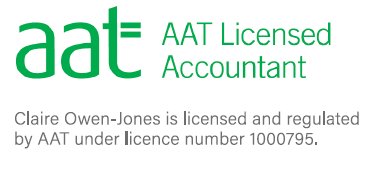Not everyone wants to outsource their bookkeeping.
If you have a head for numbers and the capacity in your workload to take it on, keeping the bookkeeping in house may seem like the preferred option.
However, great bookkeeping is more than entering figures into a spreadsheet, so I'm going to run through the most common mistakes I see being made on a regular basis and tell you how to rectify them.
Not all incoming money is income
Quite often I see bookkeeping where all of the money that has been paid into your bank account is categorised as sales.
This isn’t strictly true however.
Income comes in various forms. Yes, it could be from your customers. It could be from the sale of some of your equipment such as your computers, machinery or even a car. You could also be employed and have your wage paid in to your business bank account. You could take out a loan, make a bank transfer, recieve a VAT repayment or just be reimbursing the business for some personal expenses.
All of these need to be treated differently, so if you do your own bookkeeping to save on your accountancy fees (rather than for management information) make sure you keep them all separate.
Remember that you pay tax on your profits, so over inflating them with false income will distort your profit percentages and increase your tax bill.
A general rule of thumb is just to ask where the money has come from. If it relates to a customer then treat it as a sale, but if it links to another outside source (yourself, sale of an asset, bank transfer) it will be a balance sheet item.
Not all outgoing money is an expense
Just like the income, money leaves your bank account for all kinds of reasons and not all of them are a considered to be a business expense.
If it links to you personally, for example a Netflix or gym subscription, then it is not a buisness expense so it doesn’t hit the profit and loss.
Bank transfers, loan repayments, tax payments are all balance sheet items so should not touch your profit and loss.
If you are self employed then any money that you take out of the business is not considered to be wages, so again, should not go into the profit and loss. If you trade through a Limited company, only your employment income that goes through payroll can be included. Anything else, including dividends, does not.
Putting these through will decrease your profit so if you put aside money for your year end tax bill, you could be faced with a short fall when the actual calculation is made.
Being self employed or a Director of a Limited Company makes a difference to the bookkeeping
Whether you are a sole trade or a Limited company makes a big difference to what you can put through your accounts.
The most common area for confusion is motor expenses. If you are a sole trade, the line between you and your business is very faint. Your car can be an asset and your business can pay for all its running costs and maintenance, even any finance that you may have taken out. This doesn’t mean that your business will be able to obtain tax relief on these expenses, as it is likely there will be some personal use, but they can go through the accounts.
If your business is a Limited company then the rules are very different. You and your business are completely separate so you cannot claim for your car or any of the running costs. If HMRC think that there is reason to believe that your car belongs to the Limited company then you will need to complete a P11d.
If you are unsure, ask yourself if you’d give this expense to one of your employees. So, would you pay for the finance on your employee's car? Would you pay for one of your team to go out for an evening meal with their family? Would you buy them some new clothes? All of these are personal expenses so go through your Directors Loan Account in the balance sheet.
There is no such thing as a miscellaneous item (or sundries)
This is more of a pet hate of mine that an outright mistake. I believe that every expense has a category.
Creating a “misc” column says to me that you don’t know what the item is.
Generally I find things like bank charges, courses, subscriptions, staff lunches and cheques find their way into the miscellaneous column and it can add a considerable amount of time into the accounts preparation whilst I work out what they are and re-categorise them.
The chances are that you never issue a cheque without knowing who it’s to or what it’s for, so remember to update any bookkeeping with this information. As an accountant I’d rather you gave me a spreadsheet with 50 columns of expenses than the same expenses packed into 5. The accountant’s job is to make sure everything is allocated correctly, so a clear audit trail is a massive help.
Your cash flow is different to your profit and loss
The profit and loss is made up of all of the income generated by your business, less all of the expenses incurred from the first day of your financial year right through to the last.
Your cash flow is all of the money that has been paid in during the period, less any money paid out.
The two are different not only in terms of timing but also by what’s included. An obvious example is your tax bill. Your personal tax is due on 31st January and 31st July so you need the money for this but it’s not a business expense; the same with your corporation tax. The same goes for finance and loan repayments.
For a more accurate picture, enter the sales and invoices onto your accounting system (whether that is Xero or excel) when they are issued/received and not when they are paid. This will give you a clearer picture of your actual sales and actual expenses.
This will also help you to track what customers owe you money and in turn, this will help you to identify the poor payers. You will also know what bills you still need to pay, so identifying what money in the bank is left for you to take as income is easier.
If you ever become unsure of how to record an item of income or expenditure, contact your accountant. They have based their fees on you providing them with accurate bookkeeping so it is in their best interest to keep it this way; failure for you to do this will see an increase in your fees.







